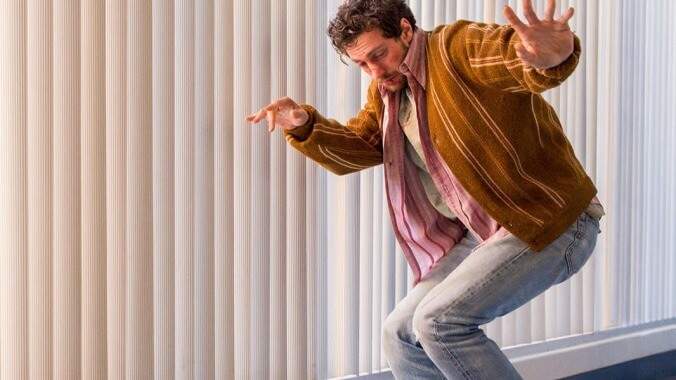13 years after the scandal, A Million Little Pieces finally becomes a mediocre movie

Do people still remember the James Frey scandal? Back in 2006, Oprah Winfrey—who’d chosen Frey’s addiction-recovery memoir A Million Little Pieces for her book club, thereby making it an instant smash—raked the author over the coals in response to allegations that he’d fabricated significant details of what was ostensibly his life story. Frey confessed to having indulged in some exaggeration for dramatic effect (a transgression one might term “good writing”), weathered the ensuing storm of indignation, and went on with his successful career; you’ll find his shared “story by” credit on Queen & Slim, to cite only the most recent example. Despite all that hullabaloo, only now, long after A Million Little Pieces’ moment has passed, is a film adaptation finally arriving in theaters. “Based on the controversial best-seller,” trumpets the poster, without mentioning that said controversy is entirely extra-textual. Absent that knowledge, the movie version plays exactly like every other rehab-facility melodrama ever made. Even the stuff that Frey invented seems overly familiar, borrowed from sources ranging from 28 Days to (somewhat improbably—people in recovery aren’t necessarily allowed dental anesthetic, it turns out) Marathon Man.
That said, this project is a true labor of love: written for the screen by married couple Sam Taylor-Johnson (Fifty Shades Of Grey), who also directed, and Aaron Taylor-Johnson (Kick-Ass), who also stars. Like the semi-memoir, it opens in medias res, with Frey awakening on an airplane with a badly injured face and no memory of where he’s headed. His destination turns out to be a treatment center, though of course he initially denies that he has a substance-abuse problem and continually threatens to leave. The entire film is one long “of course,” really. Of course, a no-nonsense counselor (Juliette Lewis) who’s herself a recovering addict patiently lets Frey bounce protestations off of her until he finally accepts his situation. Of course, Frey develops a close bond with an older fellow patient (Billy Bob Thornton) who’s been through it all and knows just how to adroitly defuse a newbie’s despondent anger. Of course, there’s a doomed romance with a young woman (Odessa Young) who’s just too fragile for this world. Only the obligatory relapse is missing—Frey just keeps getting better—and its unexpected absence is truly a tonic.
Sam Taylor-Johnson began her career as an experimental multimedia artist, and her early music videos and short films (credited to her birth name, Sam Taylor-Wood), like “Death Valley” from the X-rated omnibus project Destricted, are strikingly conceptual. She creates a few similarly memorable images here, depicting a key moment as heavily distorted by the view through a whisky glass and symbolizing Frey’s sense of being lost via a long-distance, seemingly random shot of a bunny crossing an empty road. But she’s adapted a book that was memorable less for its narrative (whatever the truth-fiction ratio may be) than for the unorthodox method of its telling. Frey eschews standard methods of signifying dialogue (i.e., there are no quotation marks), creating a stream-of-consciousness effect that this movie never even attempts to replicate in visual form. Instead, it relies entirely on its actors, who all do solid work but are unable to transcend the plodding predictability of every step in this banal 12-step journey. Ironically, Frey’s much-derided poetic license only serves, in this context, to make his story play just like everyone else’s.